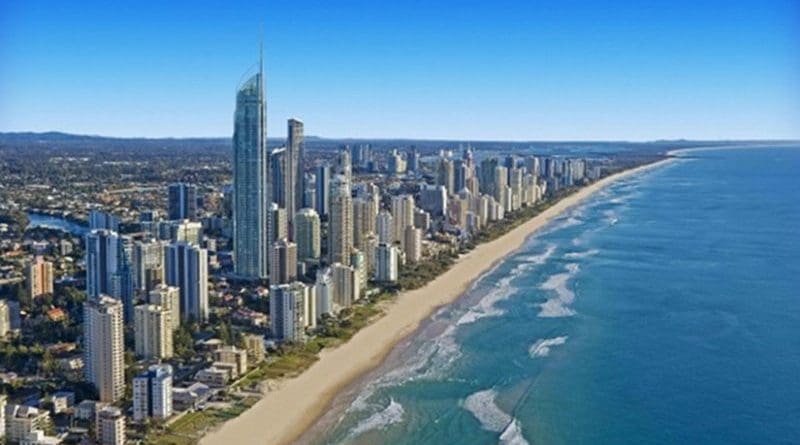UAE: Sweeping Legal ‘Reforms’ Deepen Repression, Says HRW
Wide-ranging legal changes introduced by the United Arab Emirates (UAE) in late 2021 fail to address the longstanding and systematic restrictions on citizens’ and residents’ civil and political rights, Human Rights Watch said. The new laws maintain previous provisions and include new ones that pose grave threats to fundamental human rights.
As reported by the state news agency WAM in November, the legal changes include amendments to over 40 laws including on crime and punishment, cybercrimes, and drugs, aiming “to strengthen economic, investment and commercial opportunities, in addition to maximizing social stability, security and ensuring the rights of both individuals and institutions.” While the changes allow for a moderate broadening of personal freedoms, the new legal framework retains severe restrictions on the rights to free expression, association, and assembly.
“While the UAE government and its state-controlled media outlets trumpeted these new legislative changes as a massive step forward for economic and social freedoms, they will further entrench government-imposed repression,” said Michael Page, deputy Middle East director at Human Rights Watch. “The UAE government has chosen to squander an opportunity to improve freedoms across the board and instead has doubled down on repression.”
Human Rights Watch conducted a comprehensive legal analysis of two of the new laws, the crime and punishment law and the cybercrimes law, to identify any changes related to the rights to free expression and free assembly. Both laws went into effect in January 2022.
The laws continue to prohibit criticism of rulers and speech that is deemed to create or encourage social unrest, imposing severe penalties for vaguely defined charges. They maintain provisions that criminalize defamation and both verbal and written insults, whether published or made in private, as prosecutable offenses. New provisions criminalize “false” and “misleading” information, sharing information with foreign groups or countries, and “offending foreign states.” Protests and demonstrations would still be prohibited.
Since 2011, UAE authorities have carried out a sustained assault on freedom of expression and association, arresting and prosecuting scores of independent lawyers, judges, teachers, students, and activists, and shutting down key civil society associations and the offices of foreign organizations, effectively crushing any space for dissent.
Previous laws that severely suppress freedom of expression have often been used to stamp out dissent. Local news sites, many of them owned or controlled by the government, exercise self-censorship in accordance with government regulations and unofficial red lines. Since at least 2015, UAE authorities have ignored or denied requests for access to the country by United Nations experts, human rights researchers, and critical academics and journalists.
UAE authorities have also spied on international journalists, activists, and even world leaders using sophisticated Israeli and EU-produced spyware, or with the help of former US intelligence officials. Some of those whose communications and devices were targeted by the government surveillance and who are residents of the UAE, were subsequently arrested and abused in detention. Among them is the prominent Emirati human rights activist Ahmed Mansoor. A UAE court sentenced Mansoor to 10 years in prison in May 2018 following a grossly unfair trial, partly based on private email exchanges and WhatsApp conversations.
Abusive provisions in both the new penal code and the cybercrimes law violate the UAE’s Constitution and international standards, Human Rights Watch found. The UAE Constitution guarantees freedom of speech and of the press. These guarantees are also well established under international human rights law. The International Covenant on Civil and Political Rights (ICCPR) holds that “everyone shall have the right to freedom of expression…to seek, receive and impart information and ideas of all kinds.” While the UAE is not a party to the ICCPR, it constitutes an authoritative source and guideline reflecting international best practices.
The UAE is a state party to the Arab Charter on Human Rights, which also ensures the right to information, freedom of opinion and freedom of expression, and guarantees the right to freedom of political activity, the right to form and join associations, and the right to freedom of assembly and association.
Such vague laws invite self-serving interpretation by the government, and with courts that have proven compliant in harshly regulating speech, the result will be continued anxiety, self-censorship, and arbitrary enforcement of the law in the UAE.
The UAE authorities should take immediate steps to bring the penal code and cybercrime law into line with international and regional standards on free speech and individual freedoms, Human Rights Watch said. The UAE has not ratified the ICCPR, article 19 of which outlines the right to freedom of opinion and expression. But it is a state party to the Arab Charter on Human Rights. Article 32 of the Arab Charter ensures the right to information, freedom of opinion and freedom of expression, and article 24 guarantees the right to freedom of political activity, the right to form and join associations, and the right to freedom of assembly and association.
“The UAE cannot market itself as a reformist and tolerant state while introducing new laws that increase its already alarming levels of repression and censorship,” Page said.

